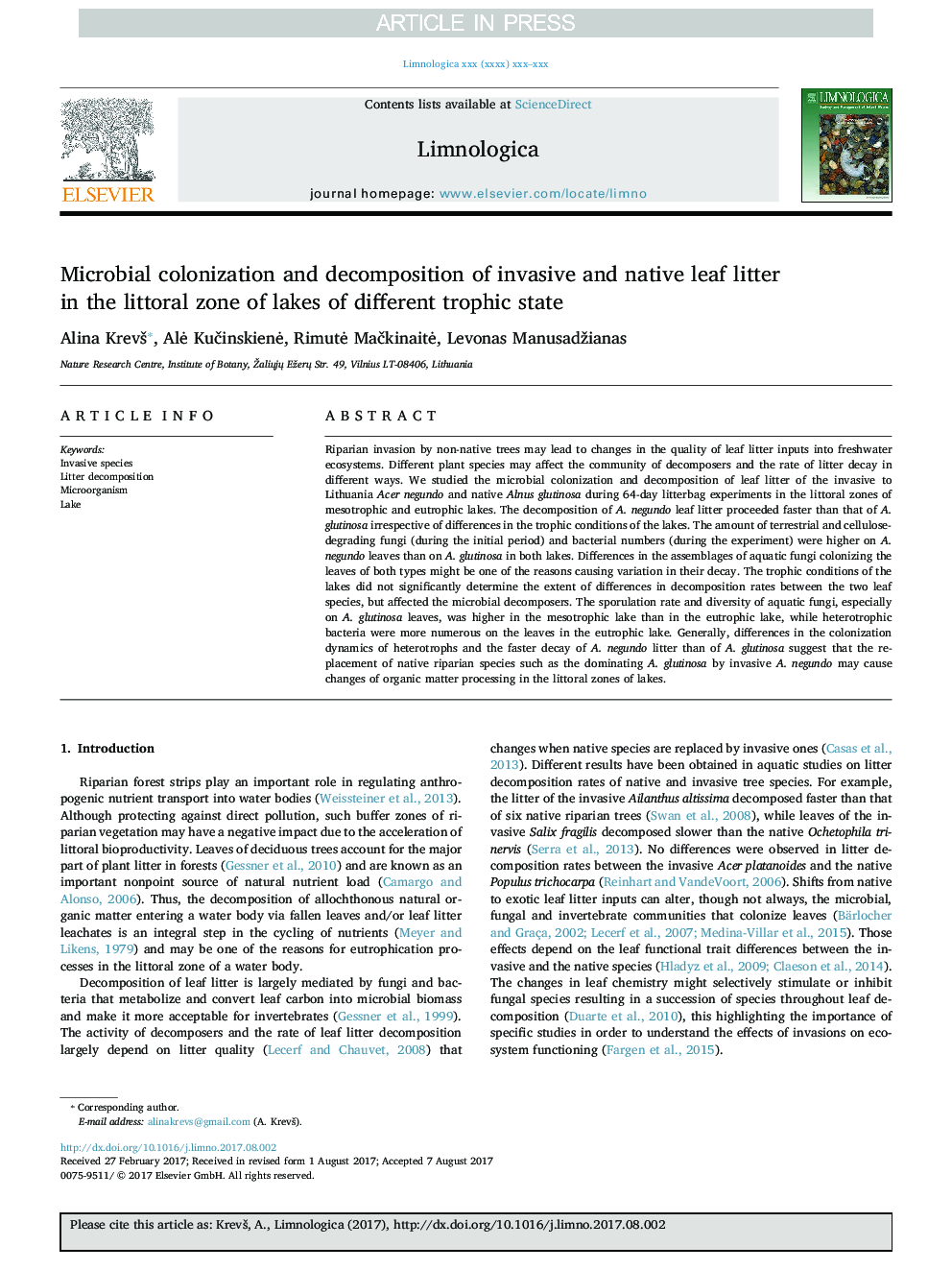| Article ID | Journal | Published Year | Pages | File Type |
|---|---|---|---|---|
| 8849439 | Limnologica - Ecology and Management of Inland Waters | 2017 | 10 Pages |
Abstract
Riparian invasion by non-native trees may lead to changes in the quality of leaf litter inputs into freshwater ecosystems. Different plant species may affect the community of decomposers and the rate of litter decay in different ways. We studied the microbial colonization and decomposition of leaf litter of the invasive to Lithuania Acer negundo and native Alnus glutinosa during 64-day litterbag experiments in the littoral zones of mesotrophic and eutrophic lakes. The decomposition of A. negundo leaf litter proceeded faster than that of A. glutinosa irrespective of differences in the trophic conditions of the lakes. The amount of terrestrial and cellulose-degrading fungi (during the initial period) and bacterial numbers (during the experiment) were higher on A. negundo leaves than on A. glutinosa in both lakes. Differences in the assemblages of aquatic fungi colonizing the leaves of both types might be one of the reasons causing variation in their decay. The trophic conditions of the lakes did not significantly determine the extent of differences in decomposition rates between the two leaf species, but affected the microbial decomposers. The sporulation rate and diversity of aquatic fungi, especially on A. glutinosa leaves, was higher in the mesotrophic lake than in the eutrophic lake, while heterotrophic bacteria were more numerous on the leaves in the eutrophic lake. Generally, differences in the colonization dynamics of heterotrophs and the faster decay of A. negundo litter than of A. glutinosa suggest that the replacement of native riparian species such as the dominating A. glutinosa by invasive A. negundo may cause changes of organic matter processing in the littoral zones of lakes.
Related Topics
Life Sciences
Agricultural and Biological Sciences
Aquatic Science
Authors
Alina KrevÅ¡, AlÄ KuÄinskienÄ, RimutÄ MaÄkinaitÄ, Levonas Manusadžianas,
